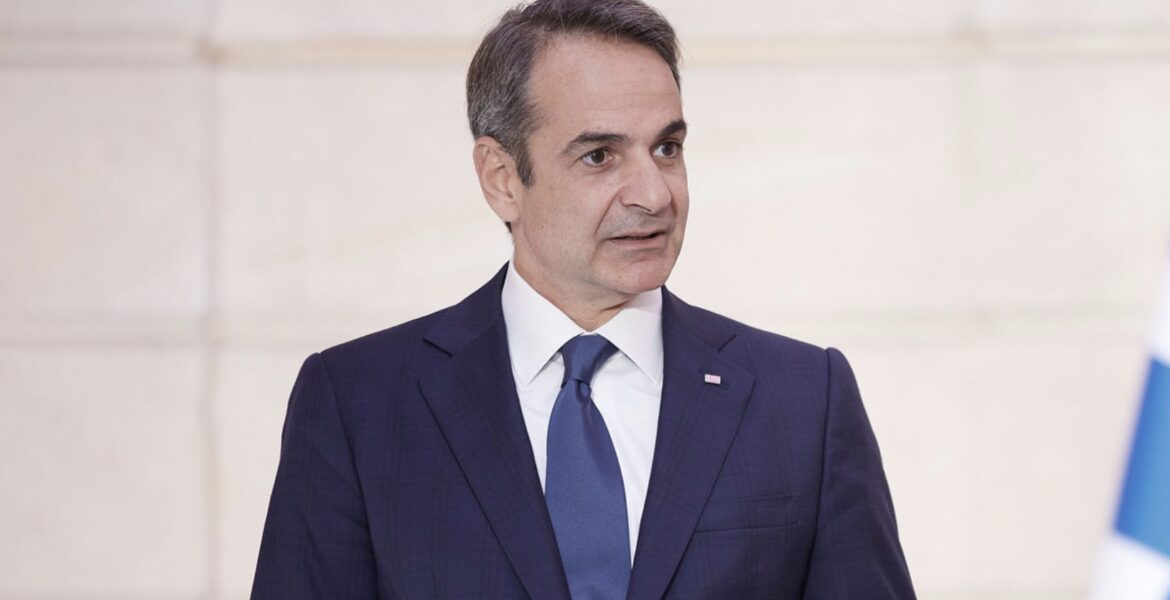Mitsotakis is facing opposition from within his own ruling New Democracy, mainly from MPs representing rural areas. For the time being, no final decisions have been made on whether the issue of party discipline will be raised.
Prime Minister Kyriakos Mitsotakis is expected to state what he will do with the issue of same-sex marriage in an interview he will give today to ERT.
The reactions of New Democracy MPs are already intensifying, and it is estimated that more than 40 MPs disagree, while yesterday Archbishop Ieronymos II of Athens sent a new warning message to the Maximos Palace, given that the Church of Greece will express an opinion on the issue after Mitsotakis makes his speech.
The problem in the ruling party is mainly focused on the provincial MPs, who say they will face a big problem in their constituencies. And to a large extent, they are right, as Parapolitika highlights, because the electoral base of the ND appears to disagree with the proposed legislation overwhelmingly.
In Maximos Palace, they watch the debate develop with concern. For the time being, final decisions have been made on whether the issue of party discipline will be raised and whether it will concern only the MPs or the ministers as well. For example, Makis Voridis has declared for a long time that if the issue of party discipline is raised for those who hold portfolios, he himself will resign.
Abstention
In this climate, a channel is being sought to defuse tensions and the possibility of allowing dissenters to abstain from the crucial vote is being considered, but nothing is considered certain at this stage. Asked about this, government representative Pavlos Marinakis noted that the decision to introduce party discipline in the bill’s passage belongs to Mitsotakis.
“It is better to listen to the prime minister. We do not know the details of this legislation. It is very important in a rights issue like this. It should not be a field of fierce confrontation, and we must listen to the arguments,” said Marinakis.
Makis Voridis: “I’m not changing my opinion”
“I don’t see myself changing my mind. The issue has many parameters; it is important that all opinions are heard,” said MP Voridis. “I am not in a difficult position.”
He argued at the same time that the Church can have a say when it comes to issues that have a strong moral dimension, such as that of same-sex couples.
However, he hastened to add that the prime minister has not committed himself to when he will bring the legislation to the Parliament, implying that it may be postponed in the future.
And Thanos Plevris appeared categorical, underlining that he disagreed not only with the bill but, in general, with any intervention in family law.
“I disagree with any intervention in family law, therefore also with changing the form of the family, even if there was no adoption. A cohabitation agreement in simple forms has resolved these issues,” he said.
Anna Karamanli, speaking to ANT1, said that there are more serious problems that concern citizens and reiterated that she disagrees with the marriage of same-sex couples.
Asked what she would do if party discipline were imposed, Karamanli said, “In life, there are red lines. I can’t, it’s a matter of conscience. It is not a political but a social issue, and there must be freedom of will.”
The message of Archbishop Ieronymos II of Athens
Archbishop Ieronymos II of Athens, shortly before the meeting of the Permanent Holy Synod of the Church of Greece, was asked about the issue of same-sex marriage and childbearing.
“We hear so much that we are all confused. Someone will speak from the state. We are waiting to hear what line will be followed, and then we will take a position”, commented the Primate of the Greek Orthodox Church, indirectly sending the message that the Church not only has a say and an opinion on the matter but will express it and play a role when there are developments.

